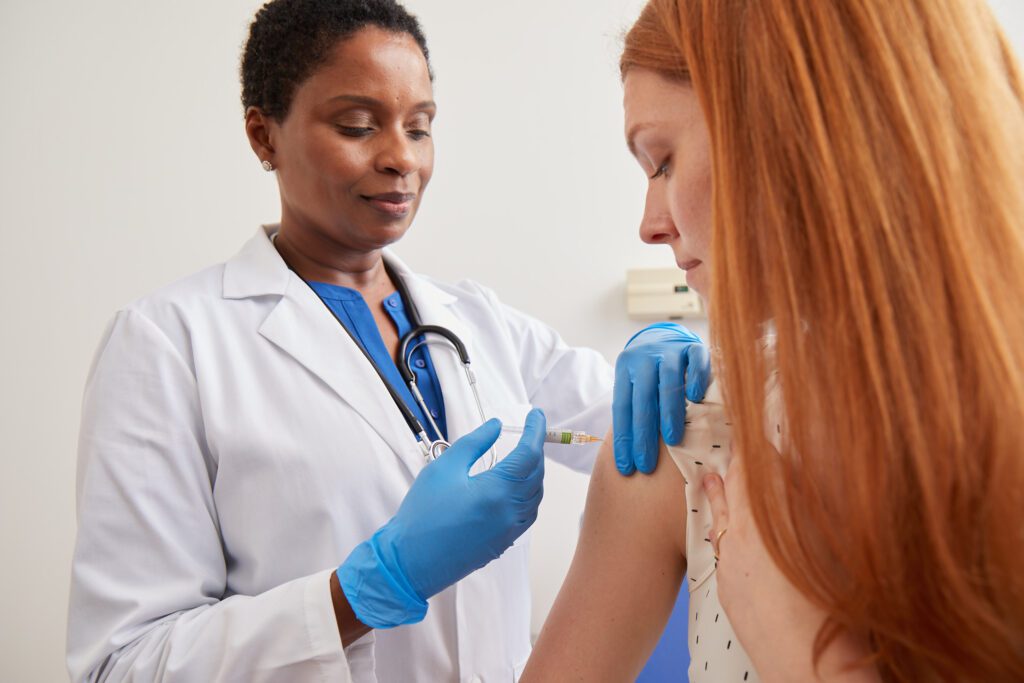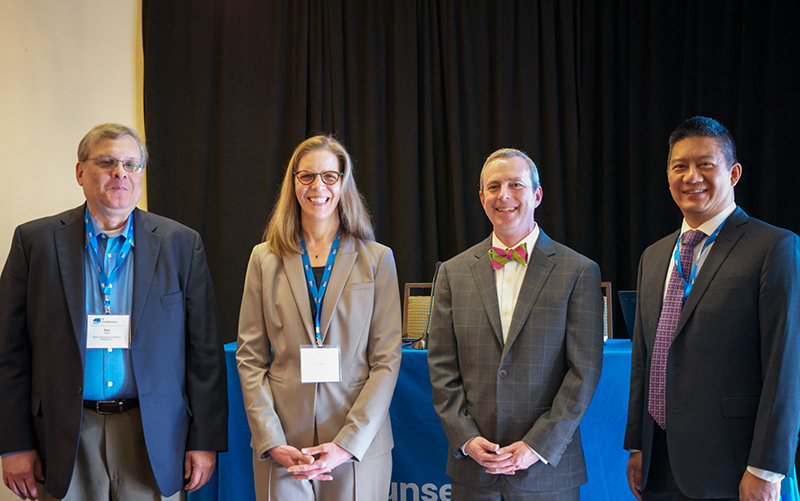September is a perfect time to schedule your flu vaccine– as well as COVID and, if you’re eligible, the new RSV vaccines. And with the increased burden of flu in the past few years, it is more important than ever to ensure you and your family are vaccinated before the upcoming flu season.
How important is the flu vaccine? According to the Centers for Disease Control and Prevention (CDC), last year, flu vaccines “prevented 1.8 million flu-related illnesses, 1,000,000 medical visits, 22,000 hospitalizations, and nearly 1,000 deaths.”
To kick off the fall respiratory disease season, Bio.News talked with Gregg Sylvester, MD, MPH, Chief Health Officer at CSL Seqirus, about all things flu: how previous seasons may predict the disease burden of this year’s flu season, what we can learn from flu season in the Southern Hemisphere, and how to choose the right flu vaccine for you and your family.
Bio.News: What can last year’s flu season tell us about how patients and doctors need to start thinking about this year’s flu season before it begins?

Dr. Sylvester: According to the CDC, U.S. flu hospitalizations were higher during the 2022/23 flu season than they had been at comparable points in every other flu season since the 2010/11 season. Flu activity continued to remain high across the U.S. in the 2022/23 season, with approximately 27-54 million reported cases of influenza-like illness, at least 12 million people visiting a healthcare provider based on complications related to seasonal flu, 300,000 hospitalizations, and 19,000 deaths.
We saw a concerning trend of low influenza immunization rates compared to previous seasons, creating a public health concern and a risk to the capacity of health systems.
As we approach this year’s flu season, people, pharmacists, and doctors should refer to the CDC’s recommended flu vaccination timing, especially that children requiring two doses should receive their first dose as soon as possible (including during July and August) to allow the second dose to be received, ideally, by the end of October. For most people who need only one dose of influenza vaccine for the season, vaccination should ideally be offered during September or October.
Bio.News: What have we seen so far in the Southern Hemisphere that could provide hints about what to expect about the upcoming flu season here?
Dr. Sylvester: While every flu season is different, flu activity in the Southern Hemisphere has historically been a strong predictor of what to expect during the Northern Hemisphere season. Australia experienced an early and significant increase in influenza this season, with case numbers appearing similar to the 2019 season that lasted months longer than usual. Additionally, this season has had a particularly strong impact on Australian children.
This information provides an important warning that we should be prepared for a potential similar trend here in the U.S.
Bio.News: What is the most important thing people need to know going into this flu season?
Dr. Sylvester: The CDC recommends annual influenza vaccination for all eligible individuals ages six months and older to prevent and lessen the severity of disease. Since the COVID-19 pandemic, we have seen a significant drop in immunization rates, underscoring that flu remains a threat that will return if vaccination rates are not high this flu season. Annual influenza vaccination is especially important for people at a higher risk of developing serious influenza-related complications—including older adults, pregnant people, and children younger than five years old.
Bio.News: As vaccine options diversify across the board, what are some key steps that people can take with their doctors to keep themselves healthy this flu season?
Dr. Sylvester: People should ask their healthcare providers about flu vaccination early—before flu season reaches its peak. According to the CDC’s Advisory Committee on Immunization Practices (ACIP), for most people who only need one dose of influenza vaccine for the season, vaccination should happen during September or October. However, it’s never too late to get vaccinated.
Remember, children aged 6 months through 8 years who require two doses should receive the first dose as soon as the vaccine is available. And vaccination during July and August can be considered for children of any age who require only one dose and pregnant people who are in the third trimester during those months.
Bio.News: What are some key things to know about choosing a flu vaccine? How does age, location, etc. factor in?
Dr. Sylvester: In the past decade, influenza vaccines have greatly evolved from standard-dose, egg-based vaccines to include enhanced, cell-based innovations and adding an adjuvant to influenza vaccines for older adults that provide greater protection.
CSL Seqirus manufactures FLUCELVAX® QUADRIVALENT, the first and only cell-based quadrivalent influenza vaccine, which is available for individuals six months of age and older. By avoiding egg adaptation, cell-based flu vaccines provide an exact antigenic match to the World Health Organization-selected influenza virus strains.
CSL Seqirus also manufactures FLUAD® QUADRIVALENT, an adjuvanted seasonal vaccine for adults 65 years of age and older which is preferentially recommended by the CDC’s ACIP over standard-dose influenza vaccines. FLUAD QUADRIVALENT is specifically designed with the MF59® adjuvant to address some of the factors impacting vaccine effectiveness in older adults. FLUAD is the first FDA-approved seasonal influenza vaccine that contains an adjuvant, which is an immune-enhancing ingredient used in vaccines to help enhance the body’s immune response for effective protection against influenza.
No matter the demographic, CSL Seqirus is the only manufacturer with differentiated options for all eligible age groups six months and older. People should talk to their doctors and local pharmacists to decide which vaccine is right for them.
Bio.News: Last year we dealt with potential ‘tripledemics’ of the flu, COVID-19, and RSV. Is that a risk this year?
Dr. Sylvester: To ensure we prevent the potential consequences of influenza and protect health system capacity, it is important that we work with our partners in public health to help restore influenza vaccination rates back to pre-COVID-19 pandemic levels for the benefit of public health.
We’re already seeing a resurgence in influenza early this year in the Southern Hemisphere—which can be a predictor of influenza in the U.S.—as well as recent rises in U.S. COVID-19 cases. Since we expect RSV to co-circulate with influenza and COVID-19 again, it is crucial that eligible people take advantage of available vaccines to protect themselves, their loved ones, and their communities from the circulation of influenza, COVID-19, and RSV.
I encourage everyone to speak with their doctor or local pharmacists about getting a flu vaccine early, before flu season reaches its peak. For more background on influenza, vaccination, and answers to other common flu questions, visit Flu.com.




